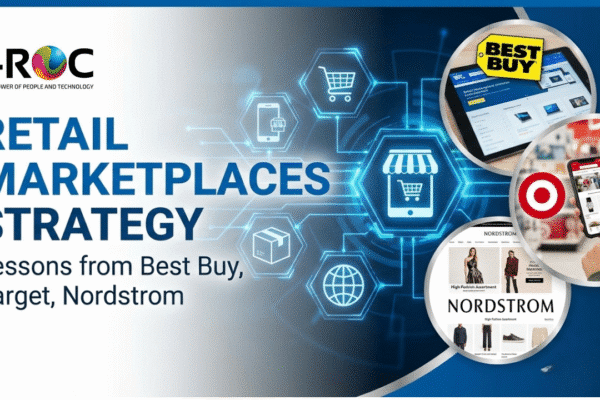
Understanding Customer Engagement Management
Connecting with customers in a meaningful way is vital for any business. However, achieving true customer engagement can be easier said than done. Businesses must carefully consider how to foster lasting, mutually beneficial relationships with their customers. The kind built on great customer service that leads to customer satisfaction and wins customer loyalty.
This process requires gaining a nuanced comprehension of customer motivations, priorities, and behaviors. Though the path to rich customer engagement is rarely a straightforward one, those willing to commit to understanding customers on a deeper level stand to be rewarded with higher satisfaction, brand loyalty, and advocacy.
Mastering Customer Engagement
At its core, customer engagement is about implementing strategies, procedures, and technologies aimed at building a healthy relationship with customers by continuously delivering positive experiences. It’s a holistic approach that prioritizes active participation and, ideally, loyalty from the customer base. Customer engagement focuses on treating the customer community as active participants rather than passive receivers of services or goods.
Technology plays a significant role in customer engagement management. The use of consumer data and product analytics is key to mapping the customer journey, and ensuring a successful customer engagement solution. The goal is to create an engaged customer — one fully invested in your brand, leading to increased product adoption and positive customer loyalty.
Customer success management and customer engagement management often intertwine. Where customer success teams ensure customers achieve the desired outcomes using your products, customer engagement managers make sure these customers are interacting deeply with your brand.
The Crucial Role of Customer Engagement in Business
Customer engagement is integral to business success. Highly engaged customers often become loyal advocates of a brand, drive increased revenue, and offer valuable feedback. They’re more likely to partake in customer loyalty programs, invest time and money in your business, and act as ambassadors, recommending your product to others through relationship marketing.
This highlights the importance of customer success management in driving customer retention. Engaged customers tend to be more satisfied customers who have developed an emotional connection with your brand and product experience. These loyal customers are less likely to switch to competitors. Instead, they often actively contribute to the customer community, enhancing the overall customer experience and promoting product adoption.
In essence, customer engagement leads to a positive customer experience, which in turn fosters increased product adoption through relationship marketing in which the customer touts the product experience to others. In an interconnected world, customer engagement marketing strategies are more important than ever. Social media, for instance, offers a phenomenal platform for brands to interact with their customers, conduct social media contests and virtual events, show off relevant content, and utilize customer engagement strategies to boost brand voice and build customer loyalty.
Key Components of Effective Customer Engagement Management
Omnichannel Communication
A key principle in an effective customer engagement strategy is omnichannel communication. Today’s customers interact with brands through various channels, including websites, social media, emails, and mobile apps. To navigate this landscape, customer engagement managers, equipped with strong leadership skills, need to collaborate with product teams. Their goal is to create and sustain a smooth customer journey that offers omnichannel support across all touchpoints.
Omnichannel communication serves to provide consistent customer experiences and minimize customer effort. It guarantees that, regardless of the channel or timing, the customer engagement manager is able to deliver a cohesive and personalized journey for the customer. This approach ensures that interactions remain seamless and tailored to the individual, enhancing overall satisfaction.
Personalization and Customer Experience
Personalizing customer experiences is not a choice anymore but a necessity. Personalization helps brands build a healthy relationship with their customer base and promotes success by creating an engaged customer. Each interaction should reaffirm the customer’s decision to choose your brand and make them feel valued enough to come back for repeat purchases.
Customer experience management tools such as data analytics can be used to gain insight into customer behavior patterns and demographics. Layering this data onto customer interaction histories can help companies predict future customer needs and personalize experiences accordingly.
Analytics for Insightful Decision-Making
The role of analytics in customer engagement cannot be overstated. Rich customer data collected at various stages of the customer lifecycle can be analyzed to draw valuable insights into customer behavior, preferences, and expectations. These insights aid engagement managers in shaping engagement strategies.
Analytics enable tracking of important customer engagement metrics. These could be key performance indicators such as website bounce rate, email open rate, or social media engagement rate. Monitoring and analyzing these metrics are critical for assessing the success of your customer engagement marketing strategy.
Customer feedback is another crucial component in this realm. Feedback provides direct insight into how your customers feel about your products and services. Feedback can help identify pain points and areas for improvement, driving product teams to make necessary improvements to guarantee a positive customer experience.
Strategies for Successful Customer Engagement
Building and maintaining strong customer engagement hinges on the effectiveness of your customer’s journey and the prowess of your customer support teams. The art of engaging with your customers lies at the core of ensuring a positive product experience, which fosters customer retention.
Harnessing the Power of Marketing Automation for Enhanced Engagement
A pivotal element of any customer engagement strategy is marketing automation. This powerful tool constantly analyzes customer data, identifying product adoption trends and tailoring customer experiences for a more engaged customer base. By integrating automation, businesses can elevate their product experience to new heights.
Elevating Customer Success Through Feedback Prioritization
In the realm of customer success management, customer feedback stands as a gold mine. Each customer’s opinion offers valuable insights that empower product team members to refine the overall product experience and fortify customer loyalty. Prioritizing and leveraging this feedback is integral to the continuous improvement of your offerings.
Fostering Lasting Relationships on Social Media
Social media platforms emerge as dynamic arenas for successful customer engagement marketing. Initiating activities such as social media contests and virtual events create a friendly environment that not only encourage customer engagement but also nurtures a loyal customer community. Cultivating relationships through these channels ensures a more vibrant and enduring connection with your audience.
The Influence of Technology on Customer Engagement Management
In an era marked by the rise of artificial intelligence and other technological innovations, customer engagement managers and customer success managers are adopting novel strategies to optimize outcomes and build customer loyalty.
Revolutionizing CRM with Cutting-Edge Software
Contemporary customer relationship management (CRM) software offers crucial business insights and analytics based on customer data. This enhances customer service levels and cultivates a robust and harmonious relationship between the business and its customers.
The Evolving Role of AI in Customer Interaction
AI is a game-changer in reshaping customer engagement strategies. Customer success teams leverage AI to automate interactions, elevating the consistency of service and, consequently, customer satisfaction. The integration of AI heralds a new era in efficient and personalized customer engagement.
Anticipating Future Tech-Driven Trends in Customer Engagement
As we look ahead, emerging trends such as virtual reality, voice assistants, and advanced analytics are poised to redefine the landscape of customer engagement. Expert insights predict a future characterized by a more personalized and interactive customer journey, made possible by ongoing advancements in technology.
Successful Customer Engagement Strategies
Successful customer engagement strategies are built on understanding and meeting the evolving needs and expectations of customers. Analyzing customer data allows businesses to effectively strategize and target a customer engagement plan to deliver personalized customer experiences. A multifaceted approach involves integrating various communication channels, from social media and email to in-person interactions, to create a seamless and personalized customer journey. Listening to customer feedback is paramount, as it provides valuable insights that can improve communications channels, guide product improvements, inform product teams, and lead to customer service enhancements.
Embracing technology, such as AI and CRM software, allows businesses to automate interactions, ensuring consistent and efficient communication channels. Moreover, cultivating a positive and customer-centric organizational culture is instrumental in fostering lasting connections. Ultimately, successful customer engagement strategies go beyond transactional interactions; they aim to build genuine relationships, instill brand loyalty, and create a customer experience that leaves a lasting impression.
Overcoming Challenges in Customer Engagement
Effective customer engagement is not without its challenges. High customer expectations and the complexity of omnichannel engagement often make customer engagement a daunting task. However, with the right industry resources, technological tools, and strategies, these challenges can be overcome.
Dealing with High Customer Expectations
Customers today expect a seamless and highly personalized experience. To meet such expectations, customer success managers must continuously engage customers, respond to their needs promptly, and provide a top-notch customer service experience. Industry resources can be a valuable tool in this journey towards better customer success management.
Navigating the Complexity of Omnichannel Engagement
The multiple channels of communication available to customers today have made engagement strategies increasingly complex. Customers expect a consistent experience across all sales and communication channels. Therefore, the customer success manager must be adept at navigating multiple channels to deliver a seamless customer journey.
Adapting to Rapidly Changing Tech Trends
The technology landscape is ever-changing. Customer engagement managers need to stay up to date on the latest trends to effectively connect with customers. This need for dynamic adaptability is a testament to the value of leadership skills and healthy communication skills in the customer engagement manager role.
As businesses navigate an increasingly dynamic and competitive landscape, CEM emerges as a cornerstone for success, offering a comprehensive framework to comprehend, enhance, and sustain customer interactions. By prioritizing customer engagement, organizations bolster loyalty and cultivate brand advocates who can propel the business forward.
Recognizing that customer engagement is a multifaceted endeavor that spans various touchpoints, businesses can leverage CEM strategies to tailor experiences, address evolving needs, and establish a meaningful and enduring connection with their audience. In an age when customer expectations continue to evolve, understanding and implementing effective customer engagement practices is not just a strategic choice but a fundamental imperative for businesses aiming to thrive in the long term.








